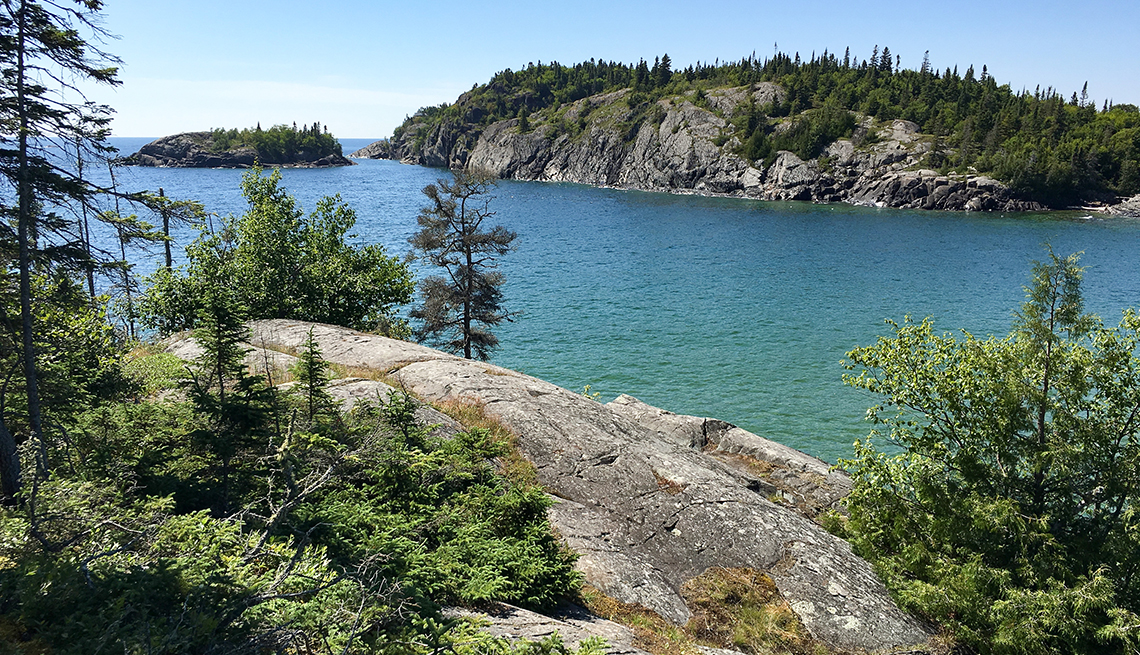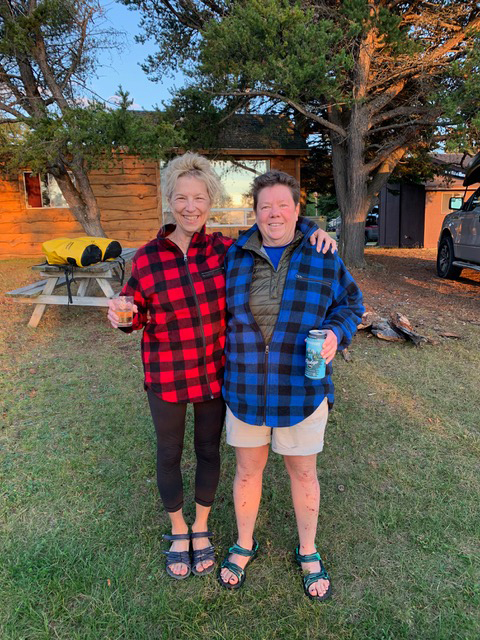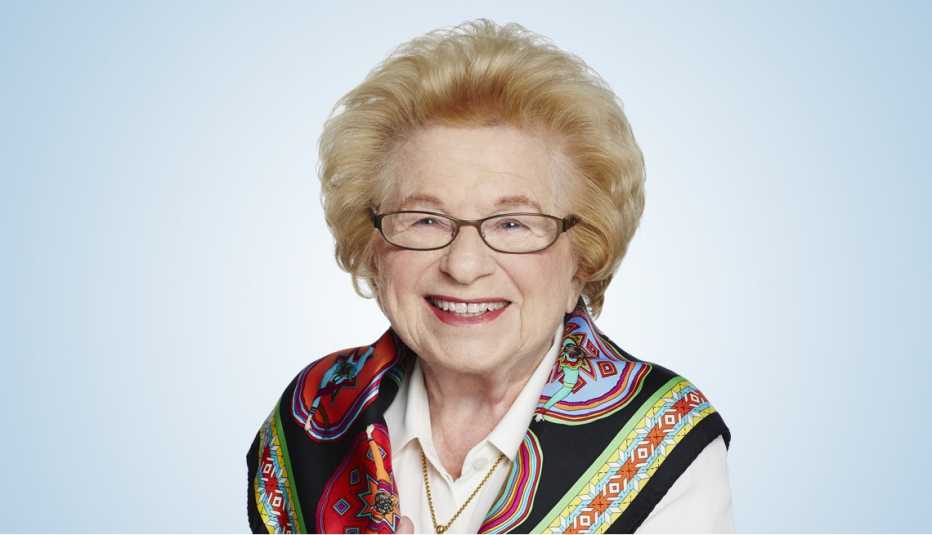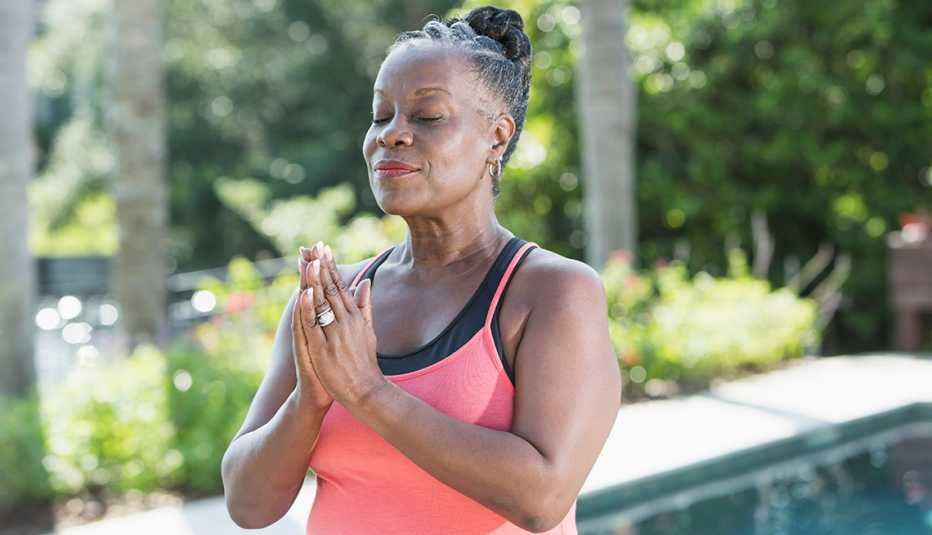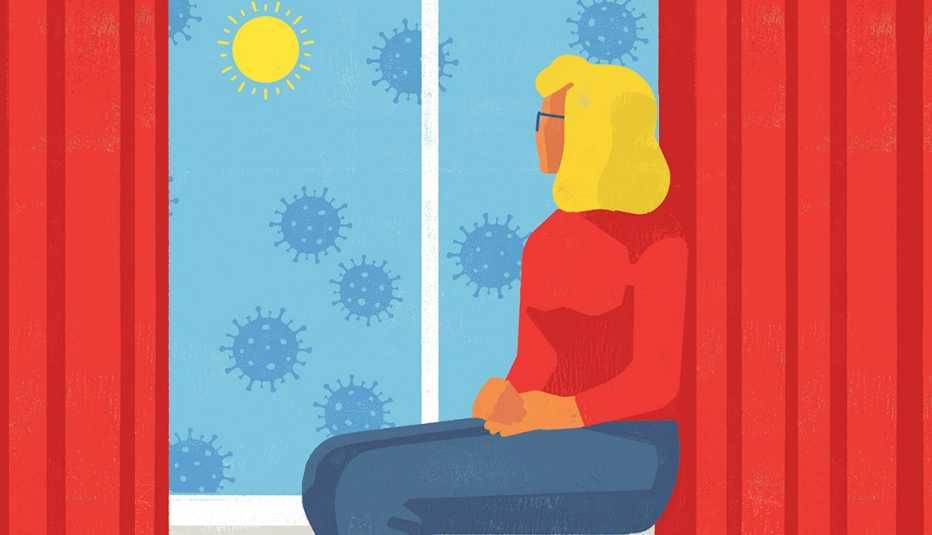AARP Hearing Center
The end of the road for me was not an actual road or even a path but a rocky slope on the northern shore of Lake Superior, 100 miles northwest of Sault Ste. Marie, Ontario, and a good 12 miles from the nearest thoroughfare.
"This is not the hill I want to die on,” I said to my friend Connie, and I took off my pack to sit down.
It wasn't a hill, for that matter. It was a clifftop, higher than the many boulder fields and rocky balds we'd already scrambled over in three days of backpacking. It will be an adventure, I told myself as we planned the trip, when I read online about the “rugged,” “challenging” trail. I'm tough; I can push myself.
It didn't occur to me then to question whether pushing myself was a laudable goal. It was simply what I did.
Connie and I are good friends. Her wife has a bad knee and can't backpack; my husband would rather use his rare time off to ski. So once a year, Connie and I and her two yellow Labradors go for a multiday hike.
The first day began pleasantly, with a long walk through groves of beech and fir, pin oak and white pine. We could hear the pounding of the waves of the lake through the forest and smell the sweet, sharp scent of balsam. In parts the trail grew steep, and we had to remove our packs and hoist them up, then help the dogs scramble up the slope. It was hard, but we managed. Then we came to the boulders.
Most of the trail onward from there was cove after cove of huge boulders. We took off our packs and squeezed between boulders, we threaded our way downhill across boulders, and we climbed over boulders. We sat down and slid on steep rocks, tearing holes in the tents buckled to our packs. Connie's legs were bloodied; I had a baseball-sized lump on my shin. We covered just 5 miles in nine hours. When we straggled out of the woods into a pebbled cove, I was so tired I could barely nod at the lone kayaker who came out to point us toward a campsite down the beach.
The next day we awoke to gray skies. The bruise on my shin stretched from knee to ankle. I walked down the beach to ask the kayaker what he knew about the next stretch of trail.
"It's tough,” he said. Then, “It's going to rain. I'm going to get out of here before the wind picks up.”
And I can't tell you why, knowing it was going to rain, we made a fire and ate breakfast and stitched up our tents until almost 2 p.m., setting off just as a light drizzle began.
































































